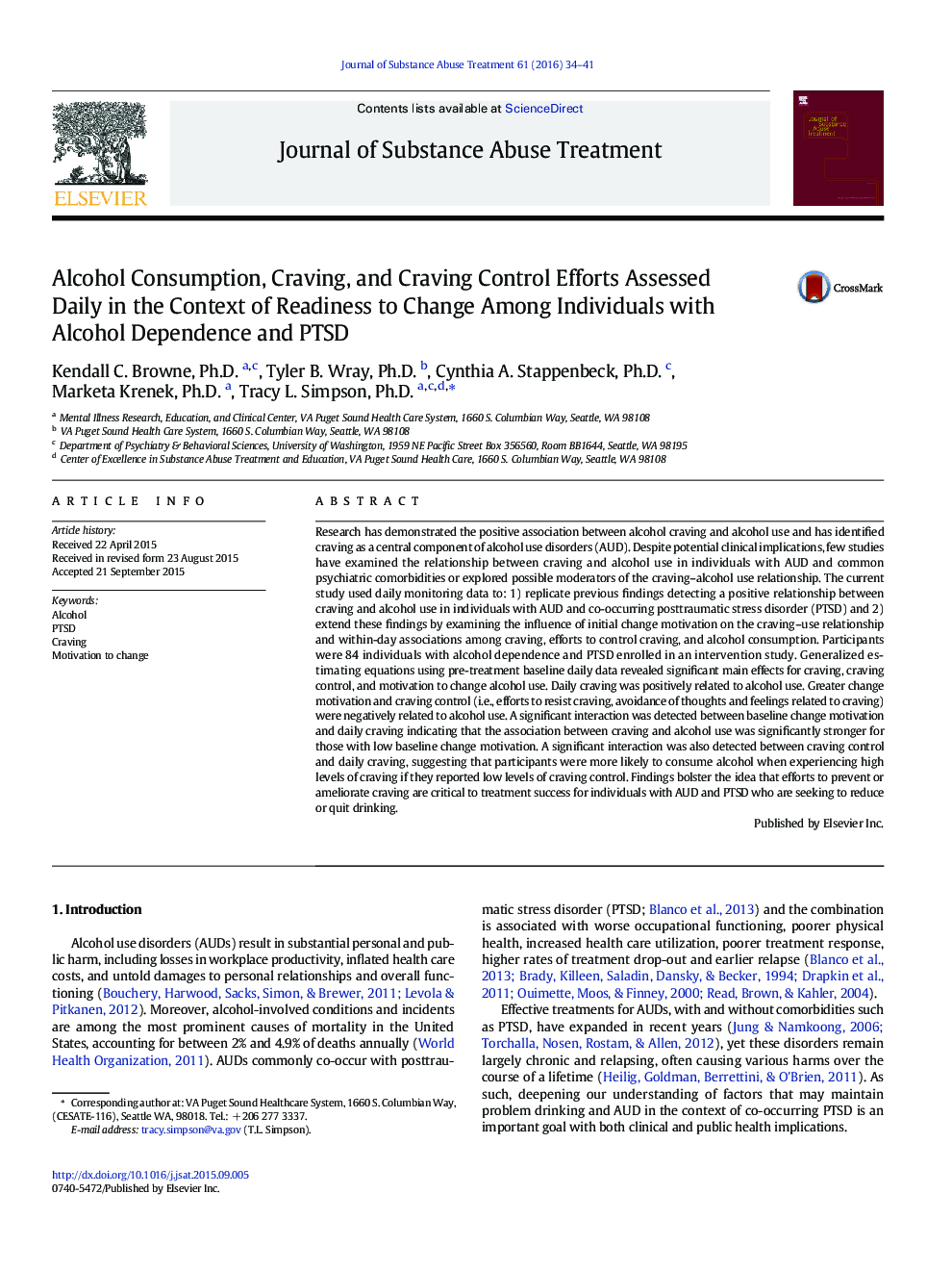| Article ID | Journal | Published Year | Pages | File Type |
|---|---|---|---|---|
| 329592 | Journal of Substance Abuse Treatment | 2016 | 8 Pages |
•Daily craving was positively related to alcohol use in individuals with AUD/PTSD.•Greater change motivation was negatively related to alcohol use.•Efforts to resist/avoid craving were negatively related to alcohol use.•The craving–use relationship was stronger for those with low change motivation.•Those with low craving control were more likely to drink at high craving levels.•Efforts to ameliorate craving may be critical for treatment success.
Research has demonstrated the positive association between alcohol craving and alcohol use and has identified craving as a central component of alcohol use disorders (AUD). Despite potential clinical implications, few studies have examined the relationship between craving and alcohol use in individuals with AUD and common psychiatric comorbidities or explored possible moderators of the craving–alcohol use relationship. The current study used daily monitoring data to: 1) replicate previous findings detecting a positive relationship between craving and alcohol use in individuals with AUD and co-occurring posttraumatic stress disorder (PTSD) and 2) extend these findings by examining the influence of initial change motivation on the craving–use relationship and within-day associations among craving, efforts to control craving, and alcohol consumption. Participants were 84 individuals with alcohol dependence and PTSD enrolled in an intervention study. Generalized estimating equations using pre-treatment baseline daily data revealed significant main effects for craving, craving control, and motivation to change alcohol use. Daily craving was positively related to alcohol use. Greater change motivation and craving control (i.e., efforts to resist craving, avoidance of thoughts and feelings related to craving) were negatively related to alcohol use. A significant interaction was detected between baseline change motivation and daily craving indicating that the association between craving and alcohol use was significantly stronger for those with low baseline change motivation. A significant interaction was also detected between craving control and daily craving, suggesting that participants were more likely to consume alcohol when experiencing high levels of craving if they reported low levels of craving control. Findings bolster the idea that efforts to prevent or ameliorate craving are critical to treatment success for individuals with AUD and PTSD who are seeking to reduce or quit drinking.
